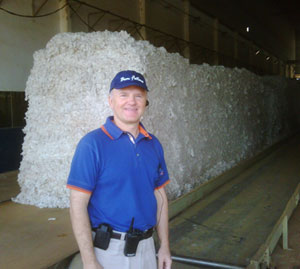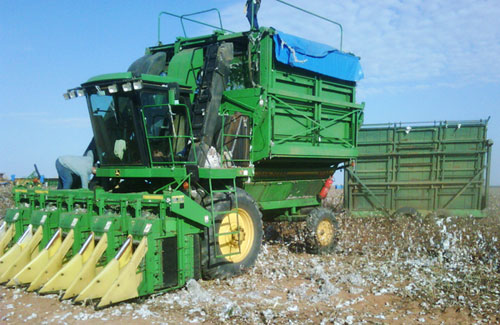 Cheap labor and a good climate for crops have positioned Brazil to make gains in agriculture. This week we sent global strategist Jack Dzierwa (pictured here) south for a look at opportunities.
Cheap labor and a good climate for crops have positioned Brazil to make gains in agriculture. This week we sent global strategist Jack Dzierwa (pictured here) south for a look at opportunities.
Brazil is currently #4 in the world in agriculture, and the sector is the largest component of the country’s $2 trillion economy. It employs more than 20 million people, or one out of every five workers in the nation.
An extended period of good weather this year has cultivated hopes that this will be Brazil’s best harvest ever, but that’s just the start. According to a recent FAO-OECD report, agriculture in Brazil is expected to grow 40 percent between 2010 and 2019. That’s the fastest rate in the world – far ahead of China (26 percent) and India (21 percent) and nearly four times greater than the U.S.
Brazil is already the world’s largest producer of coffee, oranges and sugar cane. It’s the second-largest grower of soy, and third for corn. The country is also a major player in wheat, cocoa and beef.
Beef producers in Brazil have a cost advantage over the U.S. and other countries because their cattle feed on grass as opposed to corn. This is significant because estimates shows grass-fed beef costs half as much to produce as grain-fed beef.
 But Jack got a sense that beef isn’t the meat with the brightest future. That would be poultry because of cultural and dietary preferences globally. Poultry sales have increased 5 percent each year for the past two decades.
But Jack got a sense that beef isn’t the meat with the brightest future. That would be poultry because of cultural and dietary preferences globally. Poultry sales have increased 5 percent each year for the past two decades.
The ag boom is also big for heavy equipment and service providers. Sales of tractors, combines and other heavy machinery (like the one pictured below) are up 60 percent from this time last year. However, this has been fueled by preferential tax treatment likely to end once the government changes hands in October.

New technology has increased crop yields in the Mato Grosso region, which Jack visited, by 33 percent over the past three years.
Infrastructure is also important for profitability. The breakeven point for soy producers varies by as much as 30 percent depending on their location. The government is putting in two new roads in Mato Grosso to make transportation less of a cost variable. The State of Mato Grosso is important because it harvests nearly 500,000 tons of cotton per year, representing more then half of the country’s total crop.
Major consumers like the U.S., China and Germany are already on board to receive Brazilian farm exports. Once the government addresses infrastructure issues, Brazil should be better positioned to become the breadbasket of the globalized world.
Disclaimer: This page contains affiliate links. If you choose to make a purchase after clicking a link, we may receive a commission at no additional cost to you. Thank you for your support!


Leave a Reply